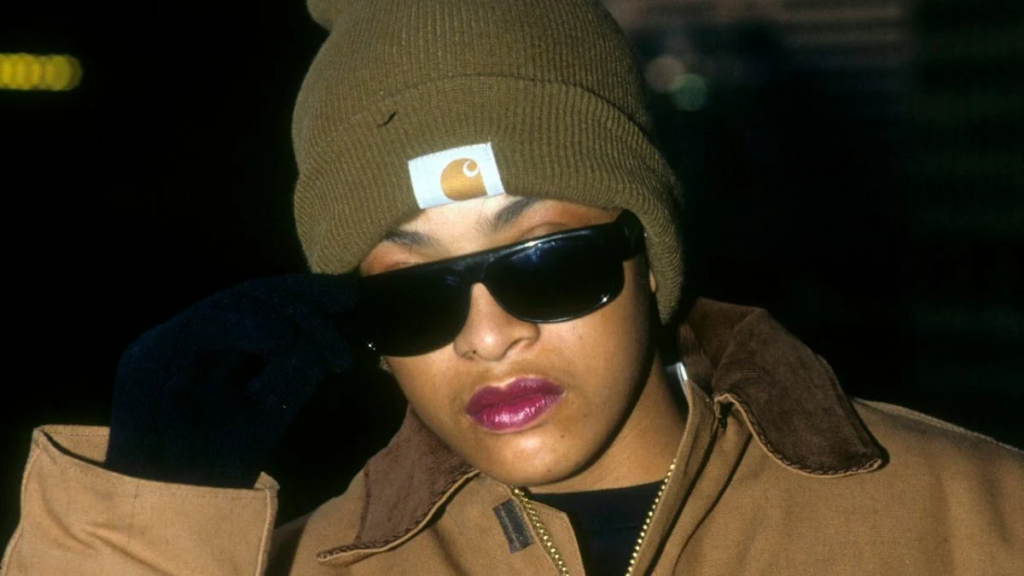 Lichelle Laws, also known as Bo$$, has passed away at age 54, according to a post by fellow rapper Bun B.
Lichelle Laws, also known as Bo$$, has passed away at age 54, according to a post by fellow rapper Bun B.
The legendary UGK rapper from Houston took to Instagram on March 11 with a picture of Laws and a tribute to his "big sis."
Bun B took to Instagram to share the unfortunate news while paying tribute to the departed in a heartfelt post.
Next to an image of the Detroit native, he wrote: “Rest in peace to my big sis Lichelle Laws AKA Boss. One of the best female MCs and a dear friend. Give Rick Royal a hug for me. Long Live The Org!”
Jermaine Dupri, Jadakiss, 9th Wonder, Ed Lover, Lloyd Banks and Slim Thug were among the many people who paid their respects under the UGK spitter’s social media share.

Soon after, DJ Premier posted his own homage to his peer and wrote: “Damn! R.I.P. BO$$. Condolences to your family… We did a dope “Deeper Rmx” @defjam never released.
“Back in 1993 she came to D & D and recut her vocals to my beat. It was so RAW. We had a good session drinking 40’s, puffin Lah and vibing.”
Along with her partner Dee, Bo$$ became the first female rap act to be signed to Russell Simmons' Def Jam West label. Originally the two hailed from Detroit, but after a brief stint in New York, the pair headed west to L.A. where they lived in near poverty for three years before gaining the attention of DJ Quik and receiving a record deal; eventually releasing Born Gangstaz in 1993.
Her debut album Born Gangstaz was released in 1993, and the singles, "Deeper" and "Recipe of a Hoe", hit number one on the Billboard Hot Rap Tracks chart.
In the mid-1990s, she moved to Dallas, Texas, and went on to be a radio DJ. In 2001, she collaborated with Krayzie Bone on his album Thug On Da Line. In 2004, she released a mixtape titled "The Six Million Dollar Mixtape" produced by Def Jef.
While details on Bo$$’s passing remain scarce, it was revealed in May 2011 that Laws was in need of a kidney due to her suffering from renal disease, a disease that rendered her kidneys useless for processing toxins in her body. In 2017, She suffered a major stroke and seizure.
https://youtu.be/yYjwGXoXI8A?si=ActTlphUTVPWWxJ-
“We are now trying to see if the family can get a specialized procedure for her,” the GoFundMe description read. “The procedure is costly and we wanted to reach out to her extended family, her friends and fans, to ask for assistance with helping her to be blessed with this procedure to help her to get back to her health. The funds are needed as soon as possible to set her up for the procedure.
“After this procedure, she will be on the kidney list for a transplant from a donor, once we receive one. “We are humbly requesting your help, family. Please give whatever you can. We are grateful for anything that you can do.”
Black or African Americans are more than 3 times as likely and Hispanics or Latinos are 1.3 times more likely to have kidney failure compared to White Americans. Minority populations have much higher rates of high blood pressure, diabetes, obesity and heart disease, all of which increase the risk for kidney disease.
Without dialysis or a kidney transplant, kidney failure is fatal. You may survive a few days or weeks without treatment. If you're on dialysis, the average life expectancy is five to 10 years. Some people can live up to 30 years on dialysis.
Symptoms and Causes of Kidney Failure
Many people like Bo$$ experience few or no symptoms in the early stages of kidney disease. However, chronic kidney disease (CKD) may still cause damage even though you feel fine.
CKD and kidney failure symptoms vary between people. If your kidneys aren’t working properly, you may notice one or more of the following signs:
- Extreme tiredness (fatigue).
- Nausea and vomiting.
- Confusion or trouble concentrating...
- Swelling (edema), particularly around your hands, ankles or face.
- Peeing more often.
- Cramps (muscle spasms).
- Dry or itchy skin.
- Poor appetite or food may taste metallic.
How is kidney failure diagnosed?
A healthcare provider may use a variety of kidney function tests to evaluate your kidneys and diagnose kidney failure. If the provider suspects you’re at risk of kidney failure, common tests include:
Blood tests. Blood tests show how well your kidneys remove waste from your blood. A provider will use a thin needle to withdraw a small amount of blood from a vein in your arm. Technicians will then analyze your blood sample at a lab.
Urine tests. Urine tests measure specific substances in your pee, such as protein or blood. You’ll pee into a special container at a provider’s office or a hospital. Technicians will then analyze your urine sample at a lab.
Imaging tests. Imaging tests allow a provider to look at your kidneys and the surrounding areas to identify abnormalities or blockages. Common imaging tests include kidney ultrasound, CT urogram and MRI.
Bo$$'s GoFundMe page managed to collect more than $17,000 since it was put up.
In May of 2023, it looked like BoSS was doing better.
"I know it's been a while for some of you guys," the update read. "I just wanted to stop by and let everyone know that Boss is doing good. We still are working through some challenges but the healing journey continues."
May she rest in peace. This story is continuing to develop. Stay tuned for further details.









